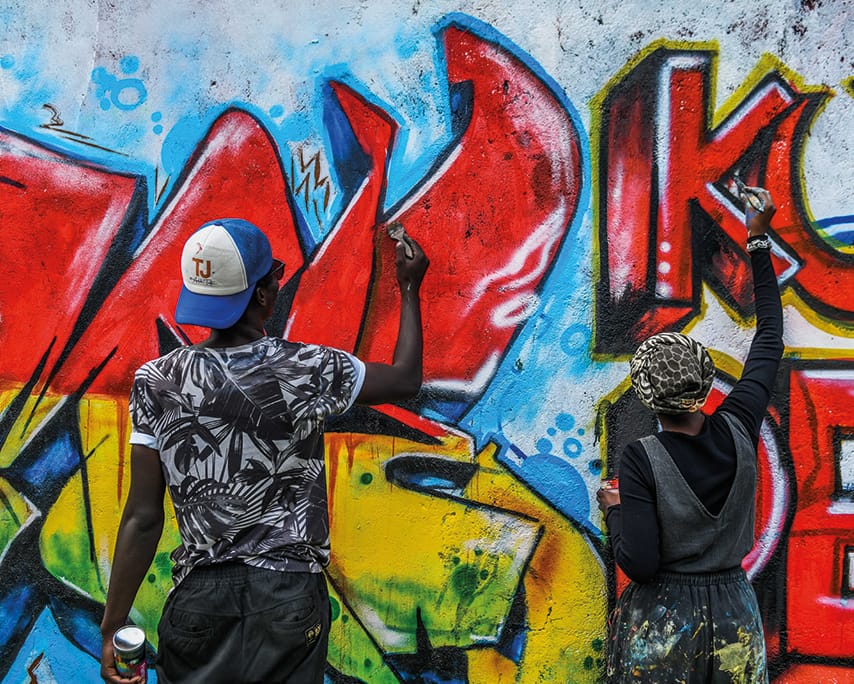Prioritising youth voices in shaping sustainable urban environments
Today’s young people are not just observers of urban development; they are the potential architects of a new urban landscape. By channelling their energy and creativity, they can help transform cities into sustainable, inclusive, and resilient communities. To enable this change, Africa must empower and engage its youth to be part of creating environments that offer better living conditions, increase civic participation, and open up more opportunities. During this year’s World Cities Day, we explore what it means to prioritise youth voices in shaping sustainable urban environments.
Urbanisation presents both opportunities and challenges for young people in Africa. It can improve economic prospects, education, and cultural exposure, but it also brings living conditions, employment, and health difficulties. Understanding these dynamics is crucial for developing effective policies and programmes that support youth in navigating urban life’s complexities and harnessing their growth and development potential.
Every society faces the challenge of harnessing its youth’s resilience and energy. This youthful energy represents a powerful force for societal progress. Societies recognise that young people can drive innovation, provide fresh perspectives, and lead positive change. To effectively tap into this energy, it is crucial to create opportunities for youth to participate meaningfully in shaping their communities, ensuring their voices are heard and their talents are used for the common good.
Young people often bring innovative ideas and fresh perspectives that can address societal challenges and drive creativity and entrepreneurship. The goal is to leverage their skills in technology and digital platforms to improve community education and access to information. Additionally, it is essential to encourage their involvement in advocacy for social justice, human rights, and environmental sustainability. Promoting their participation in politics and governance also fosters democratic values and ensures a range of viewpoints are represented.
Youth involvement in the urbanisation conversation is vital for creating vibrant, inclusive, and sustainable cities. Their energy, creativity, and passion can lead to innovative solutions and meaningful changes that benefit current and future urban residents. By empowering young people to take an active role in shaping their urban environments, we can create cities that meet the diverse needs of their populations and contribute to overall societal progress.
Young people are increasingly taking charge of their personal growth and engaging with their communities. With the internet and digital resources at their fingertips, they have unprecedented access to information and tools that help them educate themselves about issues affecting their lives and cities. Social media amplifies their voices, connecting them with like-minded peers and mobilising them for action. From grassroots initiatives focused on environmental sustainability to movements advocating for social justice, young people are leading the way in driving meaningful progress.
However, many young people still face significant barriers that hinder their ability to create positive change. Challenges such as limited access to quality education, high unemployment rates, social and political instability, and systemic discrimination based on gender, race, or economic status can stifle their contributions. These obstacles impede individual development and weaken communities’ potential to thrive.
To unlock the full potential of youth, especially in the context of rapid urbanisation, families, communities, organisations, and governments must work together to create supportive and empowering environments. This begins with investing in education and vocational training programmes that equip young people with the skills they need to succeed in an increasingly competitive job market. Providing accessible education through formal institutions or online platforms allows young people to enhance their knowledge and skills, preparing them to tackle urban challenges head-on.



